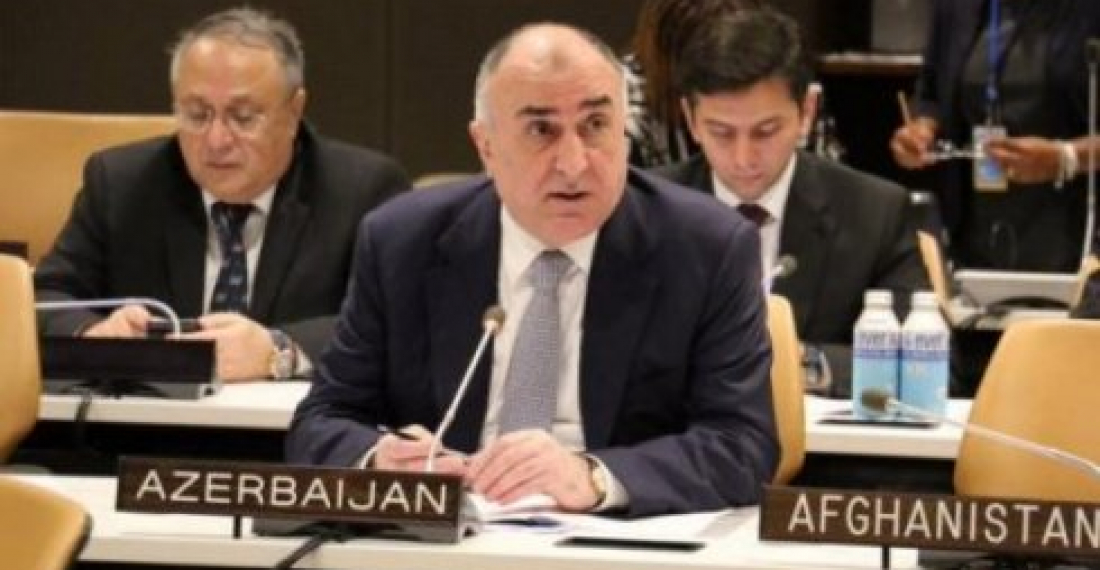The foreign ministers of Armenian and Azerbaijan are expected to meet in New York this week on the margins of the UN General Assembly in talks mediated by France, Russia and the United States as co-chair of the OSCE Minsk Process, the international mechanism mandated to help find a solution to the Nagorno-Karabakh conflict. The mood around the talks is however pessimistic.
Foreign Minister of Azerbaijan Elmar Mammadyarov on Monday (23 September), addressed the Karabakh contact group in the framework of the Organisation of Islamic Co-operation (OIC). In his speech the Minister was quoted as saying that "instead of conscientiously participating in the negotiations under the auspices of the OSCE Minsk Group, Armenia, in order to gain time to consolidate the results of the occupation and ethnic cleansing, is abusing Azerbaijan's commitment to a peaceful resolution of the conflict, takes every opportunity to slow down the negotiation process and avoids a solution to the conflict "
The Minister took exception particularly to a statement made in the summer by Armenian prime minister Nikol Pashinyan, stating that Nagorno-Karabakh was part of Armenia.
The minister also said that the future of peace talks "depends on the ability, readiness and determination of the international community, including the Islamic ummah, to act promptly and decisively on this alarming issue."
In the meantime both sides in the conflict have given contradictory accounts of an incident that happened on Sunday afternoon in the Nagorno-Karabakh conflict zone which left one Azerbaijani soldier dead. The Armenians say that they repelled an attempted incursion by an Azerbaijani military unit. The sources say that an Azerbaijani soldier from an elite unit was killed in the incident and his body was left in the so called neutral zone in the area between the two sides on the line of contact.. The Azerbaijani side strongly deny the allegation of an incursion, but say one of their soldiers was killed when he lost his way. They have asked the International Committee of the Red Cross to help repatriate the body.
Preparations for the meeting between the two foreign ministers however are ongoing. On Monday, Armenian Minister of Foreign Affairs Zohrab Mnatsakanyan met with OSCE Minsk Group Co-Chairs Igor Popov (Russian Federation), Stéphane Visconti (France) and Andrew Schoffer (USA) and Personal Representative of the OSCE Chairperson-in-Office Andrey Kasprzik in New York. Mammadyarov is also expected to meet the mediators, before the joint meeting which is likely to take place on Tuesday evening.
source: commonspace.eu with agencies
photo: Azerbaijani Foreign Minister Elmar Mammadyarov addresses an OIC meeting in New York on the Karabakh situation on Monday, 23 September 2019.






